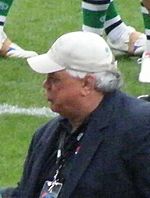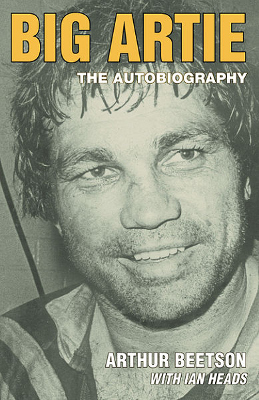Arthur Beetson facts for kids

Beetson in 2008
|
|||||||||||||||||||||||||||||||||||||||||||||||||||||||||||||||||||||||||||||||||||||||||||||||||||
|
Personal information
|
|||||||||||||||||||||||||||||||||||||||||||||||||||||||||||||||||||||||||||||||||||||||||||||||||||
|---|---|---|---|---|---|---|---|---|---|---|---|---|---|---|---|---|---|---|---|---|---|---|---|---|---|---|---|---|---|---|---|---|---|---|---|---|---|---|---|---|---|---|---|---|---|---|---|---|---|---|---|---|---|---|---|---|---|---|---|---|---|---|---|---|---|---|---|---|---|---|---|---|---|---|---|---|---|---|---|---|---|---|---|---|---|---|---|---|---|---|---|---|---|---|---|---|---|---|---|
| Full name | Arthur Henry Beetson | ||||||||||||||||||||||||||||||||||||||||||||||||||||||||||||||||||||||||||||||||||||||||||||||||||
| Born | 21 January 1945 Roma, Queensland, Australia |
||||||||||||||||||||||||||||||||||||||||||||||||||||||||||||||||||||||||||||||||||||||||||||||||||
| Died | 1 December 2011 (aged 66) Paradise Point, Queensland, Australia |
||||||||||||||||||||||||||||||||||||||||||||||||||||||||||||||||||||||||||||||||||||||||||||||||||
|
Playing information
|
|||||||||||||||||||||||||||||||||||||||||||||||||||||||||||||||||||||||||||||||||||||||||||||||||||
| Height | 188 cm (6 ft 2 in) | ||||||||||||||||||||||||||||||||||||||||||||||||||||||||||||||||||||||||||||||||||||||||||||||||||
| Weight | 16 st 8 lb (105 kg) | ||||||||||||||||||||||||||||||||||||||||||||||||||||||||||||||||||||||||||||||||||||||||||||||||||
| Position | Prop, Second-row | ||||||||||||||||||||||||||||||||||||||||||||||||||||||||||||||||||||||||||||||||||||||||||||||||||
|
|||||||||||||||||||||||||||||||||||||||||||||||||||||||||||||||||||||||||||||||||||||||||||||||||||
|
Coaching information
|
|||||||||||||||||||||||||||||||||||||||||||||||||||||||||||||||||||||||||||||||||||||||||||||||||||
|
|||||||||||||||||||||||||||||||||||||||||||||||||||||||||||||||||||||||||||||||||||||||||||||||||||
Arthur Henry "Artie" Beetson (21 January 1945 – 1 December 2011) was a famous Australian rugby league player and coach. He played for Australia, New South Wales, and Queensland between 1964 and 1981. He mostly played as a prop forward.
Arthur Beetson made history as the first Indigenous Australian to captain Australia in any sport. Many people say he was the best forward in Australian rugby league after World War II. He also had a long career as a coach from the 1970s to the 1990s. He coached Australia, Queensland, Eastern Suburbs, Redcliffe Dolphins, and the Cronulla-Sutherland Sharks.
People remember him as a humble man who cared deeply about his culture and people. The Arthur Beetson Foundation was named after him to honor his legacy. The Arthur Beetson Medal is given to rugby league players who show great skill and also have personal qualities like Arthur Beetson.
Contents
Early Life and Background
Arthur Beetson was born in Roma, Queensland, Australia, on 21 January 1945. His mother was part of the Stolen Generations, a group of Indigenous Australian children who were taken from their families.
Arthur Beetson's Playing Career
Arthur Beetson was known for his large size, surprising speed, and amazing ball-handling skills. He changed how prop forwards played the game. His ability to pass the ball and his strong attacking play helped his teams win many games.
Starting Out in the 1960s
Beetson began his rugby league journey with the Redcliffe team in Brisbane from 1964 to 1965. In 1965, he won the club's player of the year award. He also helped Redcliffe win the Brisbane Rugby League premiership.
After this success, he moved to Sydney to play for the Balmain club in 1966. In his first year, he was chosen to play for the New South Wales team. He played in the Grand Final that year.
Beetson also made his first appearance for Australia against England. He helped set up two tries in that game. In 1968, he played for Australia in the 1968 Rugby League World Cup. He was a prop forward when Australia won the final against France. He also spent some time playing for Hull Kingston Rovers in England in 1968.
Success in the 1970s
After the 1970 season, Beetson joined the Eastern Suburbs club. He played there from 1971 to 1978. He was very strong and tough, and surprisingly fast for a big player. He was also unmatched in his ball-playing skills.
He continued to play for Australia in the 1972 Rugby League World Cup. He played as a prop forward in the final against Great Britain. In 1973, he was chosen as Australia's vice-captain for a tour of Great Britain and France. He played in all three important "Ashes" test matches. During this tour, Arthur Beetson became the first Indigenous player to captain Australia in a test match against France.
Arthur Beetson was also known for his big appetite! People sometimes called him 'Meat Pie Artie'. There's a famous story about him eating 11 hot dogs before a team dinner in 1973.
He led Eastern Suburbs to win the premierships in 1974 and 1975. During this time, he also played very well for Australia. In 1974, he was named Rugby League Week's player of the year. In 1976, he captained Eastern Suburbs to win a special match against the British champions, St Helens. This Eastern Suburbs team is remembered as one of the best club teams ever. In 1979, Beetson joined the Parramatta Eels.
Final Years Playing in the 1980s
While still playing for Parramatta, Arthur Beetson made history again. He captained Queensland in the very first 1980 State of Origin game in 1980. Queensland won that game 20–10. He also had a great game in the Eels' 8-5 win over Balmain in the Tooth Cup Final that year.
In 1981, Beetson went back to Queensland to play one last year with his old Redcliffe team. He also captained Queensland in the last "traditional" interstate match in 1981. At the end of that season, his Redcliffe team narrowly lost the grand final.
Coaching Career
Arthur Beetson started his coaching career while he was still playing for Easts in 1977. He was the captain-coach of Redcliffe in 1981. That same year, he became the coach of the Queensland State of Origin team. He led them to win many series against New South Wales from 1981 to 1984.
He had a short time coaching Australia in 1983. Then, he returned to coach his old club, Eastern Suburbs, from 1985 to 1988. He was named Coach of the Year in 1987. Also in 1987, he received the Medal of the Order of Australia for his service to rugby league.
After leaving his role as Queensland coach in 1990, Beetson joined the ABC as a commentator. He coached the Cronulla-Sutherland Sharks in 1992 and 1993. In 1994, he briefly coached the Eastern Suburbs Roosters again. Arthur Beetson also spent many years finding new players for both Eastern Suburbs and Queensland.
After the 1999 season, an Aboriginal team managed by Arthur Beetson beat the Papua New Guinean national team.
Awards and Honours
Arthur Beetson received many awards for his amazing career:
- 1975 NSW Sports Star of the year
- Named in Australian rugby league's 100 greatest players
- Named as a prop forward in the Australian rugby league team of the century
- Named as a prop forward in the Queensland rugby league team of the century
- Named as a prop forward in the Indigenous Australian rugby league team of the century
- First Aborigine to captain the Australian Test team (in 1973 against France)
Many people believe Beetson was Australia's best ever forward. In 2000, he received the Australian Sports Medal. In 2001, he received the Centenary Medal for his service to rugby league. He was inducted into the Australian Rugby League Hall of Fame in 2003. In May 2004, his book, Big Artie: The Autobiography, was released.
Also in 2004, he became the seventh player to be named an "Immortal" of the Australian game. This is a very special honour given to the greatest rugby league players.
In 2008, during the centenary year of rugby league in Australia, Beetson was named in a list of Australia's 100 Greatest Players. He was also named in the front-row of Australian Rugby League's Team of the Century. In June 2008, he was chosen in the Queensland Rugby League's Team of the Century. He was also named in the Toowoomba and South West Team of the Century.
He was made a life member of the Sydney Cricket Ground. A special plaque there remembers his career. He also received the Medal of the Order of Australia (OAM). In 2008, he was given the Clive Churchill Medal for being the best player in the 1974 Grand Final. In 2009, Beetson was inducted into the Queensland Sport Hall of Fame.
In 2010, a program called the ARTIE Academy was started in his honour. ARTIE stands for "Achieving Results Through Indigenous Education". Arthur Beetson strongly believed that young Indigenous Australians needed to finish school and get jobs. The ARTIE Academy helps students achieve their best. It supports them and celebrates their successes. The program is run by the FOGS (Former Origin Greats) organisation.
In 2014, Arthur Beetson's Queensland State of Origin jersey number 11 was "retired". This means no other player will wear that number for Queensland.
Death
Arthur Beetson passed away on 1 December 2011, at the age of 66. He had a heart attack while riding his bicycle in Paradise Point, Queensland.
Honours and Legacy
The Premier of Queensland, Anna Bligh, announced that a bronze statue of Arthur Beetson would be placed at Lang Park. It was unveiled on 3 July 2012.
The Arthur Beetson Foundation was created to help Indigenous Australians achieve better results in health, education, sport, jobs, and business. The Arthur Beetson Medal celebrates rugby league players who show great skill and also care deeply about their people, just like Arthur Beetson did.
See Also
Images for kids
 | Isaac Myers |
 | D. Hamilton Jackson |
 | A. Philip Randolph |



